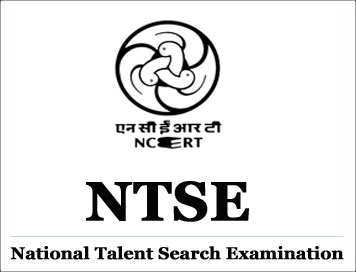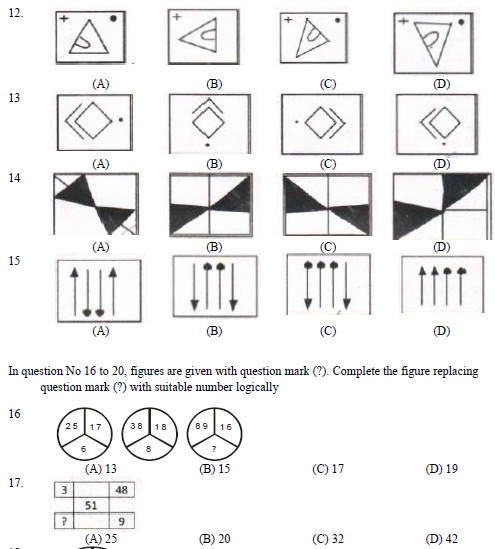
NTSE Sample Questions 2016-17 : MAT Answer Key (Gujrat State) Stage-1
1. 21, 23, 27, 33, ________?
(A)37 (B)41 (C)43 (D)49
2. 1, 6, 15, _45, 66, 91
(A) 25 (B)26 (C)27 (D)28
3. 2, 6, 12, ______30
(A) 18 (B)24 (C)20 (D)26
4. 107, 97, 82, 62________?
(A)52 (B)42 (C)47 (D)37
5. 2,1,4,3,6,5,8,________
(A)9 (B)10 (C)7 (D)8
6. 8,3,11,14,25,_____
(A)50 (B)39 (C)29 (D)11
7. 8,16,28,44,__________
(A) 62 (B)64 (C)66 (D)60
8. 2,8,18,32,50,_________
(A) 64 B) 72 (C) 70 (D) 68
9. 1,3,7,15,31___________
(A) 37 (B) 36 (C) 73 (D) 63
10. 0,3,8,15,24_____________48
(A) 41 (B) 29 (C) 37 (D) 35

